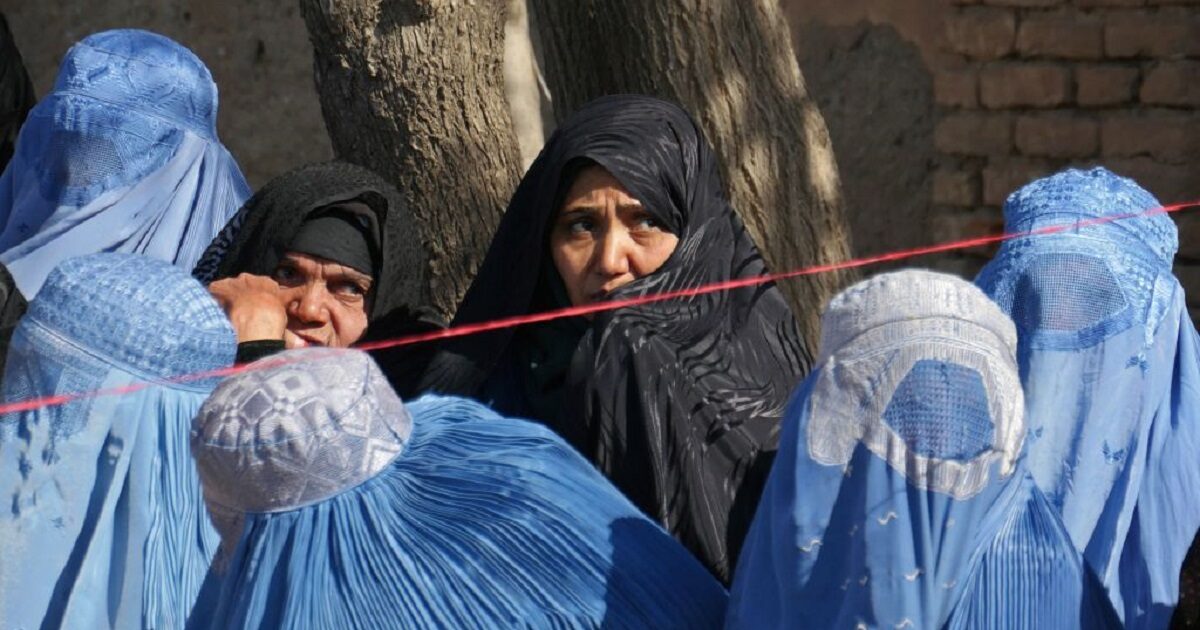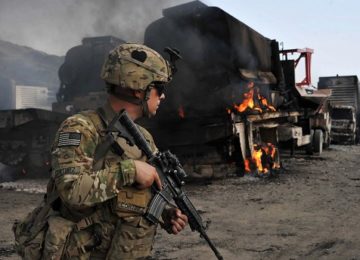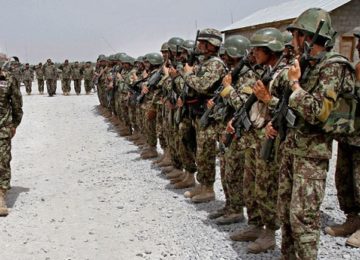BY Hamza Boltaev & Aziza Mukhammedova
Abstract:
This article examines the challenges faced by international organizations in addressing the denial of women’s rights in Afghanistan under Taliban rule and explores strategies to foster regional collaboration between Western countries and Afghanistan’s Central Asian neighbours. Despite previous efforts, progress has been limited due to factors such as funding and support issues, cultural and ideological differences, a lack of direct influence, diminished international support, and a lack of a common strategy. To overcome these challenges, a new vision is proposed, which includes engaging neighbouring countries, empowering women at the local level, respecting local culture, and implementing scholarship initiatives and infrastructure development. The article highlights the importance of strategic engagement, grassroots empowerment, and cultural sensitivity in paving the way for tangible progress in women’s rights. The internal ideological splits within the Taliban also offer a glimmer of hope, as pragmatists within the movement recognize the need to address women’s rights within the framework of Sharia law. By involving the right actors and adopting a nuanced approach, there is a possibility of achieving tangible results in collaboration with the Taliban. The article concludes by emphasizing the need for a shift in strategy and united international support to effectively address the denial of women’s rights in Afghanistan.
Since the Taliban came to power in Afghanistan, the efforts of international organizations, in collaboration with local stakeholders, have proven ineffective in achieving desired outcomes. Recognizing the urgent need to address the denial of women’s rights to higher education, employment, and access to public spaces, it is essential to formulate novel ideas and approaches supported by a cohesive strategy. It has never been more crucial to foster collaboration among Central Asian countries and establish a common approach to assisting Afghan women. This entails developing a regionally driven strategy through enhanced ties between Western countries and Afghanistan’s Central Asian neighbors to seek viable solutions.
Thus, the research question of the paper is: “How can regional collaboration between Western countries and Afghanistan’s Central Asian neighbors be effectively fostered to address the denial of women’s rights in Afghanistan under Taliban rule and achieve desired outcomes in higher education, employment, and access to public spaces for Afghan women?”For example, the obligations outlined in the Convention on the Elimination of All Forms of Discrimination against Women (CEDAW) and further elaborated by the Committee on the Elimination on the Discrimination against Women (CEDAW) provide a framework for protecting women’s rights. Although Afghanistan is a party to core UN treaties, it is widely agreed by experts and scholars, that the country is continuously violating many of those core rights of women, including CEDAW. While the general recommendations help clarify the obligations, Afghanistan’s non-compliance persists. Despite the significance of CEDAW in safeguarding women’s rights, its potential is diminished by various shortcomings that prevent Afghan women from benefiting from the intended protections.
Although these obligations are not legally binding, they carry authority and provide strong recommendations for Afghanistan. However, the Taliban’s disregard for these obligations resulted in violations, compounded by the absence of robust enforcement or sanction mechanisms hindering Afghan women from asserting their rights.
Additionally, other UN mechanisms, such as the Special Rapporteurs, also contribute to the protection of Afghan women rights. The Special Rapporteur on Human Rights in Afghanistan focuses specifically on harmful practices and the situation of women conducting visits to the country and engaging with local stakeholders.
While these bodies have the potential to offer legal and social protection, their effectiveness is limited. Their operations primarily revolve around gathering information and issuing statements, often falling short of providing adequate legal protection due to enforcement issues and the lack of effective sanction mechanisms.
Why are still there many shortcomings in helping Afghan women to get access to education, work and basic human rights?
Despite large organizations’ active engagement in reporting, organising conferences, and statements, progress remains elusive due in part to the Taliban’s entrenched resistance to change.
Supposedly, the following several reasons contributed to the limited effectiveness of policies pursued by these organizations over the past three years:
Funding and support: Most of these organizations are partially or almost entirely funded and supported by Western countries including the United States. However, given the deep-seated scepticism toward Western involvement within the Taliban-led government, the legitimacy and effectiveness of these organizations are called into question. The Taliban and their supporters view such organizations with distrust, rejecting their interventions as unwelcome interference.
Cultural and ideological differences: Afghanistan has its unique culture, history with a strong religious component attached. The Taliban’s decisions over this specific issue are generally based on their specific interpretations of Islam that are significantly divergent from the Western conceptions of women’s rights. These cultural and ideological disparities might potentially pose significant barriers to mutual understanding and collaboration between Western countries and the Taliban.
Lack of direct influence [talks]: Despite substantial efforts and resources invested by a swathe of international organizations and human rights forums, the lack of direct political engagement and certain leverage over the present government remains obvious. As the Taliban’s political and military grip over Afghanistan have been significantly strengthening over time, it is becoming seemingly challenging for the international community to apply coercive or direct pressure on Taliban them to protect women’s rights. Additionally, the traditional tribal setup, particularly the centuries-old Pashtun tradition of convening local Jirgas, plays a significant role in decision-making processes. These Jirgas often operate independently of government directives, including those related to internal and domestic disputes, as well as women’s rights. Their decisions may not align with official government policies, further complicating efforts to enforce and protect women’s rights in Afghanistan.
Diminished international support: The U.S. hasty withdrawal and Taliban’s subsequent takeover of power in 2021, prompted some countries to scale back or suspend their aid and support to Afghanistan. In addition, the limited international support and resources further undermined efforts to protect women and promote equality.
Lack of common strategy and methods: Many Afghan watchers agree that a lack of consensus and strategy among organizations for Afghanistan-related issues as well as methodology have been a principal impediment for the progress in addressing women issue in Afghanistan. Also, the absence of a cohesive approach hampers collective action and coordination.
Despite the formidable challenges posed by the complex political landscape, cultural disparities, limited influence, and waning international support, alternative approaches hold promise. The Taliban’s skepticism toward existing methodologies underscores the need for innovative strategies that transcend conventional tactics, such as reframing the discourse to move beyond vilification and fostering trust-building measures tailored to address the unique context of Afghanistan.
New vision needed
A new vision must be forged to advance women’s rights in Afghanistan, incorporating strategic initiatives tailored to the complex socio-political landscape of the region:
Engagement with Neighbouring Countries: Women’s rights organizations and forums should develop their collaboration with neighbouring countries bordering Afghanistan. Leveraging the existing cooperative relationships and pragmatic approaches of regional actors towards Afghanistan could prompt the Taliban to consider their views and proposals regarding women’s rights. Additionally, these countries hold significant economic and political leverages towards Taliban, enabling them to promote women’s participation in society through various economic assistance and trade agreements.
Local-Level Empowerment: Efforts to bolster women’s rights should extend to grassroots engagement within Afghan communities. Civil society organisations can implement educational programs, training, and skill-building opportunities to empower women and foster leadership development. Strengthening women’s position in society at the local level could catalyse attitudinal changes towards women’s rights. Successful programs from other contexts offer valuable insights for Afghanistan.
In Pakistan, community-based education and vocational training by the Baluchistan Education Foundation can be adapted for Afghanistan with mobile schools or local centres offering similar services tailored to local needs.
Bangladesh’s Grameen Bank model of microfinance, which provides small loans to women for starting businesses, could be implemented in Afghanistan to support women entrepreneurs.
Ethiopia’s Health Extension Program, which trains local women as health workers, could be adapted to improve healthcare access in Afghanistan by training Afghan women as community health educators.
India’s Jagori offers legal aid to women facing violence. Afghanistan could benefit from similar local resource centres providing legal support and advocacy.
Community-based initiatives like Nigeria’s Girls Education Project involve local leaders to promote education. Involving Afghan community and religious leaders could help overcome cultural barriers and support women’s education and rights. Engaging local communities, partnering with NGOs, and tailoring programs to local contexts will be crucial for success in Afghanistan.
Respect for Local Culture and Traditions: To garner support from the Taliban, it is important to frame discussions on women’s rights in the context of local culture and traditions. Using religious and cultural arguments to demonstrate for the compatibility of women’s rights with Islamic teachings can help overcome resistance. For example, the General Secretariat of the Organization of Islamic Cooperation (OIC) has already voiced concern over the Taliban’s policies to ban women education and visited Afghanistan to check the situation of women’s rights.
Scholarship Initiatives and Infrastructure Development: knowledgeable experts about this issue widely agree upon despite the lack of infrastructure for online education in Afghanistan, opportunities exist to facilitate women’s access to education through scholarships. The regional countries could collaborate to establish educational facilities and scholarship programs in bordering cities, enabling Afghan women to pursue academic opportunities.
In light of evolving dynamics, there is a growing recognition that neighbouring countries including Uzbekistan are believed to adapt to the circumstances in Afghanistan to engage with a broader spectrum of stakeholders within the country. This entails reaching out to minority religious and ethnic groups, women, and other stakeholders, moving beyond exclusive focus on the Taliban. Emphasizing the urgency of resolving immediate risks regarding water and security challenges underscores the need for this strategic shift.
Addressing the Taliban’s scepticism towards American and other Western civil society organizations requires a comprehensive approach. Collaboration with neighbouring countries, local-level engagement, and consideration of local culture are essential elements in laying the groundwork for constructive dialogue and positive changes in Afghanistan.
“A glimpse of light”
Presently, the Taliban experiences internal ideological splits. revealing contrasting perspectives on women’s rights within the movement. On one hand, adherents, including the movement’s leader Haibatullah Akhundzada, support strict restrictions on women’s rights, similar to those imposed during the Taliban’s previous rule. These individuals often adhere to maintain too conservative views regarding women’s role in society. On the other hand, pragmatists within the Taliban recognize the need to address women’s rights within the framework of Sharia (Islamic law) norms acknowledging that there is room for limited advancements in women’s rights – access to education and healthcare – while still adhering to their interpretation of Islamic principles.
The existence of the ideological divergence appears to provide a glimmer of hope for advancing women’s rights in Afghanistan through an engagement with pragmatists within Taliban, fostering dialogue and seeking compromises that align with both international human rights standards and their interpretation of Sharia law. By involving the right actors and adopting a nuanced approach, there is a possibility of achieving tangible results in promoting and protecting women’s rights in collaboration with the Taliban.
Сonclusion
The prohibition of women from participating in education and the workforce in Afghanistan comes with significant repercussions. This exclusion is poised to have severe impacts on upcoming generations. In the near to medium future, these directives are anticipated to lead to the withdrawal of assistance, deepening poverty, and exacerbating the nation’s economic decline. Although additional research is necessary to quantify the implications of these restrictions on women working and pursuing secondary education, there is a unanimous agreement that these regulations violate women’s rights, undermine the country’s welfare, and must be promptly revoked.
Now, more than ever, Afghanistan stands in urgent need of substantial international support, a vital lifeline that can only be guaranteed through the moderation of its current hardline policies. The escalating grip of the Taliban, coupled with the historical significance of tribal structures like the Jirgas in decision-making processes, underscores the complexity of the situation. In order to protect and advance women’s rights, ensure access to healthcare, and foster a more inclusive society, it is imperative for Afghanistan to embrace a more moderate and inclusive approach.
International cooperation and support are crucial in this endeavor. By encouraging dialogue, promoting education, and advocating for human rights, the global community can help steer Afghanistan towards a path of progress and stability. It is through collaborative efforts, diplomatic engagement, and a shared commitment to fundamental freedoms that the international community can play a pivotal role in shaping a more hopeful future for Afghanistan, one that upholds the rights and dignity of all its citizens, particularly its women and marginalized populations. In this critical juncture, the call for moderation and international solidarity resonates more strongly than ever as a beacon of hope amidst the challenges faced by Afghanistan.
Notwithstanding past setbacks encountered by international organizations, a shift in strategy presents renewed prospects for influencing the trajectory of women’s rights in Afghanistan. Collaborating with neighbouring countries offers a pragmatic and culturally attuned approach to engage with the Taliban and address their scepticism. By leveraging economic, political, and cultural connections, organizations can exert influence and advocate for the rights of Afghan women. Additionally, initiatives at the local level that empower women within Afghan communities can contribute to enduring societal transformations. While the road ahead may be challenging, a recalibrated approach holds the potential to effect substantial change in the landscape of women’s rights in Afghanistan. The crucial question remains: Will the international community seize this opportunity to forge a more effective and united front in support of Afghan women?
Disclaimer: The views and opinions expressed in this article are those of the author and do not necessarily reflect the official policy or position of the Center for Research and Security Studies (CRSS) and Afghan Studies Center (ASC).
AUTHORS
Hamza Boltaev
Head of Centre for Afghanistan and South Asian Studies at Institute for Advanced International Studies
Aziza Mukhammedova
Research fellow at Institute for Advanced International Studies








